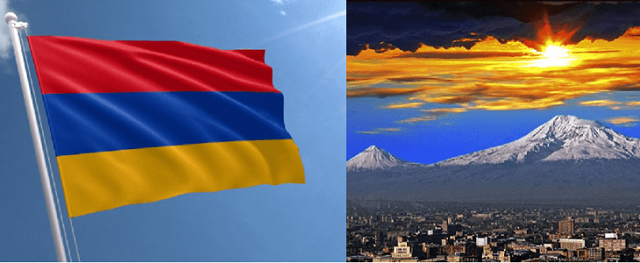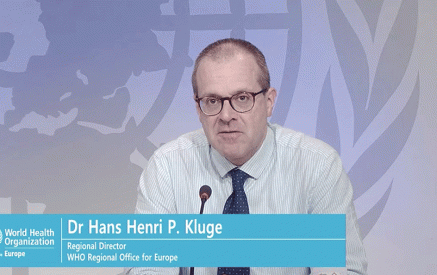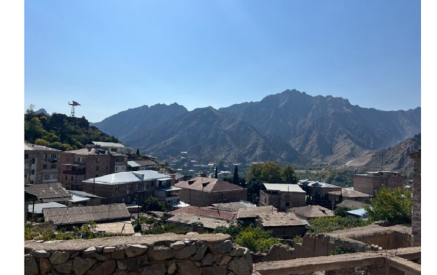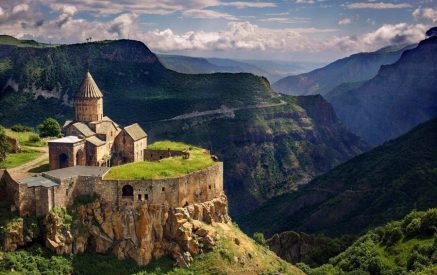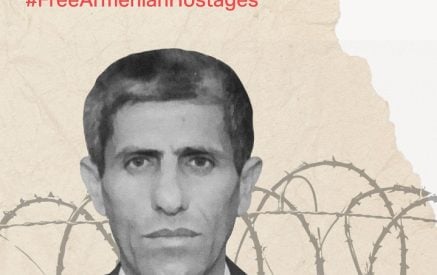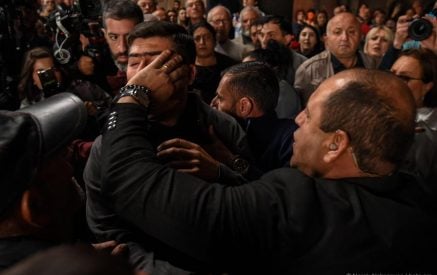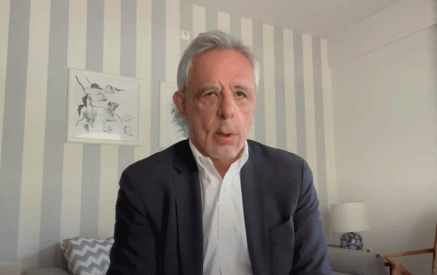ԵՌԱԳՈՅՆ. As of the printing of this post, according to the Ministry of Health, 59 new cases of Covid-19 were confirmed in Armenia, bringing the total number of cases to 1867, of which 971 are active and the total number of recoveries to 659. The number of deaths in the country stands at 30.
While a national emergency has been declared in Armenia, it is unclear to me what the Government of Armenia is thinking in terms of how to gradually reopen its economy, as a number of restrictions on movement and economic activity are being considered. As new cases keep getting registered every day, it is unclear to me if undetected community transmissions are continuing to occur in the landlocked country.
The point of the recent lock down was to accept short term economic pain, with the aim of flattening the Covid-19 curve. Ideally, these restrictions should ease once the country brings its infection rate down, and prepare itself (through methods of testing, contact tracing etc) to stop future virus outbreaks.
Abruptly abandoning social distancing in the middle of this epidemic feels risky especially since Armenia ( like many other countries) seemed unprepared for battling the pandemic. Nor do I feel that we can just “police our way” through punitive responses with citizens that don’t respect social distancing guidelines.
Read also
A national discourse in Armenia around Covid-19 seems to be missing. This discourse should not only be constrained between “saving lives or saving the economy” as it is being carried in many developed countries. At the moment (and based on the experience of other countries) I don’t feel that Armenia really knows the scope of its total cases, and the full impact of the pandemic in the foreseeable months.
Like every country, Armenia is a unique case and choices on how to proceed require deeper considerations. Some of the unanswered questions in my mind and which seem to be missing from a national discourse today include but are not limited to the following immediate issues :
How & when can schools open ? How can the national army remain protected ? How much testing is required and how can it be done ? If Armenia cannot test everyone, is random sampling feasible ? How can the GoA effectively educate its population on Covid-19 issues ? How can the GoA offer resources to citizens that are not complying with stay-at-homes measures because of desperate causes ? How can Armenia leverage digital health to combat Covid-19 ( see the case of Germany) ? How can the GoA deliver masks to its citizens (see the case of Singapore) or deliver food packages to its vulnerable population (see the case in the UK) ? What social safety nets could be put in place to protect the Armenian worker ( see the case of France) ? How will Armenian migrant workers be addressed if/when a global recession raises its ugly head ? and so forth and so on.
Armenia’s economy is its people. When policy experts debate the reopening of Armenia’s economy, I hope that the wind-down of restrictions should be very, very gradual. Otherwise, if things go wrong, outbreaks can begin again.
The Covid-19 pandemic story does not feel will be over anytime soon, as I have a feeling that a lot of surprises still await humanity. Even if the GoA decides to lift restrictions, life will not return to “normal” anytime soon. According to some expert estimates, in the best cases not until mid-2021 when a vaccine is available to the global population and thus Armenia.
Besides waiting for future “donated vaccines”, a national discourse in Armenia can also start addressing radical reforms that are required to forge a better social contract in Armenia in the long term, including wealth redistribution, better public services and safety nets. The big challenge of Covid-19 in the long term, is whether the sense of human solidarity we’ve witnessed everywhere can shape Armenian society after the crisis.
Here, starting the discussion on improving Armenia’s national/local institutions (and building new ones) to fight Covid-19 and also the next pandemic is paramount. I personally recall my humble decade long experience in the late 90s, working with the ministry of health in developing Armenia’s Immunization Program (many of today’s vaccines in Armenia’s immunization program were added during that period). Institution building is hard and long work. Now is the best time to start the important institutional work that addresses the societal vulnerabilities that Covid-19 exposed. Beyond the public health war.
Money should not be an excuse to start addressing some of the issues highlighted above. Tens of millions of funding has been reprogrammed by the EU & the US Congress. Plenty of more supplies & knowledge transfer have also arrived from the Russian Federation, China and other donor organizations. If needed, the Diaspora can also assist in a multitude of ways. What is required now is thoughtful analysis, policy making and wise selections for Armenia.
The Covid-19 virus has exposed vulnerabilities in medical/political systems and deep in the psyche of humankind. I’m convinced that humanity (and Armenians) having endured worse calamities in history, shall survive this one as well. The task ahead however is to manage the crisis while building a better future. One with a more durable economy and society for Armenia and everywhere.
Such radical reforms require a serious national discourse not obstructed by populism that tries to control the national conversation and is unable to learn from others. Recovery and a gradual return to normal will take time but will also require all the collective capabilities of a nation.
Raffy Ardhaldjian is a finance/technology professional and diasporan Armenian political thinker with an engaged history in social entrepreneurship in Armenia since independence through his family foundation, the Ani & Narod Memorial Foundation. He holds graduate degrees from the Fletcher School of law and diplomacy and the University of Chicago Booth School of Business.


















































